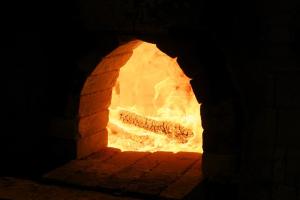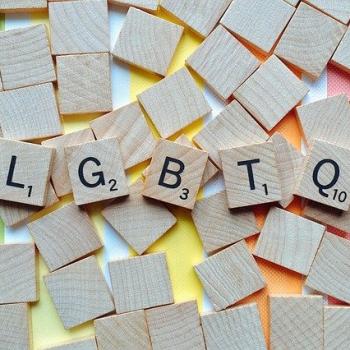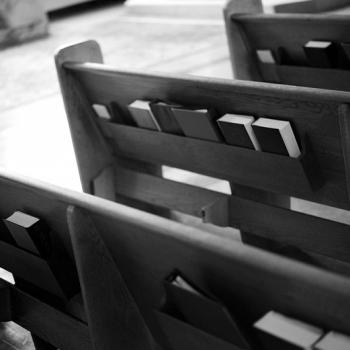
Recently, Pope Francis gave an opinion about hell.
It was a hopeful opinion, very mildly put: “This isn’t dogma, just my thought: I like to think of hell as being empty. I hope it is.”
I found the response fascinating. Of course the Pope hopes nobody goes to hell. That’s his job. He’s a caretaker of souls and he wants all souls to go to Heaven. Surgeons hope a patient never bleeds out and dies, firefighters hope that they can rescue every single person from the burning high rise before they suffocate, Popes hope everyone goes to Heaven. What was he supposed to say? “I hope you all burn?” Would that make traditionalist Catholics happy? Apparently so.
I am alarmed that a sizable number of Christians seem to think that it’s impossible to behave yourself without being afraid of eternal punishment. This doesn’t make any sense to me. A lot of my friends are atheists and pagans, and they don’t run around hurting others all the time. Some are far more generous and patient than I am. And while there’s a great variation in the things that saints said and did, I don’t find that my favorite saints were preoccupied with terror of hell. They seemed to do the wonderful things they did because they loved God, and they loved their neighbor because they loved God.
Isn’t that a better motive than the threat of eternal punishment?
Isn’t seeing the good in doing something and being excited about that good, a far better motive than fear?
Is it really virtue to be scared to step out of line? Isn’t it more virtuous to do good for its own sake because it’s worth doing?
I talked several weeks ago about people who follow Jesus, not out of love for Jesus but only to keep themselves safe from the devil. This is the same thing. If your whole life is avoiding hell, it seems to me you think more about hell than Heaven. And I don’t see how you can really call yourself virtuous if all you ever do is avoid punishments.
This got me thinking, what if there were no punishments?
If I who am evil know that there are better reasons to be good than the threat of a punishment, doesn’t God know that?
What if we refer to God’s “just punishments” as a kind of shorthand because the reality of the situation is too enormous for human words to encompass, but God wasn’t really punishing?
What if we tried a different metaphor?
Catholics are supposed to believe that hell exists, but we’re not supposed to ever lose hope for any soul. Can we really do both of those things at once, all the while not conceiving of it as a punishment but something else?
Let’s say that there’s only God, pure Love and pure Mercy and pure Justice, radiating every good thing for all eternity. God would do just about anything to save His creations, anything except force Himself on them. God is not a rapist. The logical thing to do if you’re confronted with every possible good is to walk towards every possible good, up into the light, but God is infinite and eternal so you’d end up ascending into goodness and light forever, and that’s called Heaven. It is also at least theoretically possible for a soul to say they don’t want any good things at all, and to turn around and walk away. They couldn’t escape God’s goodness because God is everywhere present and filling all things, but they could keep cringing away from goodness forever. Such a person would end up constantly biting their own tail, in a neverending spiral of seeking negation instead of good, and I guess that would burn like hell. I suppose that that is what hell really is, not a geographical destination but a state of being. And like the Pope, I can’t imagine it’s very well populated. The initial road to perdition might be wide and well populated because we all like to be selfish sometimes, but once you traveled a good ways you’d realize your mistake and turn around. Who would keep tearing themself apart for very long?
Then again, suppose that somebody did?
Suppose that somebody chooses wrong when they ought to be right, selfish when they ought to be altruistic, destructive when they ought to be something else, again and again when they have an opportunity to do otherwise. They choose to mutilate their conscience so they can focus on the selfish choices, to blind themselves to what they were doing until they honestly couldn’t see, to deafen their ears to the cries of their victims: or worse, to view the cries as a pleasurable thing. They could insist on calling good evil and evil good again and again until they develop a deliberate case of spiritual hallucination and actually think they see virtue.
Imagine the mischief such a person could get themselves into. Imagine the havoc they could wreak and the suffering they could cause. Of course, you don’t have to imagine; you live on earth. Go visit a homeless camp sometime and listen to their stories, all the things that were done to them for the sake of somebody else’s economic prosperity. Read an account of a lynching and a history of the trans-Atlantic slave trade. Look at the scratch marks on the insides of the Auschwitz gas chambers, or the burn marks on a child who was at Nagasaki when they dropped the bomb. Talk to the victim of a sexually abusive priest.
Imagine how somebody would have to vivisect their own conscience, to cause that kind of suffering to somebody else. And imagine that person in just that state found themselves confronted with infinite Justice and the light of Truth. That would hurt. Such a person could choose to walk backwards– not into darkness because God’s light fills everything, but into an endless quest to escape the light. That would be eternal damnation, by their own choice. Eternal damnation is possible. It’s something you could bring on yourself. Hell is real.
But I suppose, even if that person had been fleeing the light for thousands or millions of years, it’s still possible that there could come a day that they stopped.
After eons of forcing their eyes closed, they might open them.
After untold ages of fleeing, they might give up and take a step in the opposite direction.
Stumbling toward goodness when you’ve chosen the opposite hurts. Opening your eyes when you’ve deliberately shut them to a painful reality is agonizing. Facing the truth when you’ve deformed your entire personality to live a lie is torture. Purgatory hurts as badly as hell or worse, but not because it’s a punishment. And eventually, after ages and ages, that person might find themself in Heaven, transformed back into what they ought to be. And we can never presume that a soul is damned to hell instead of hurtling through what ultimately turns out to be purgatory. So we pray for everyone. Yes, even that person you’re thinking of now. Everybody might be in purgatory.
It’s possible that perfect justice could be satisfied, every heinous crime could be avenged, all could be satisfied, and we could still all be saved in the end.
That’s my notion of how Heaven, hell and purgatory work. It’s also my notion of the way the process of conversion and sanctification work while we’re alive on earth. It’s my notion of what it is to be human.
It’s not a perfect notion either. Nobody can express spiritual things perfectly. The whole process of sanctification or rejecting sanctification is a profound mystery. But something like that.
When we do penance and intercede, when we pray “save us from the fires of hell, lead all souls to Heaven especially those in most need of thy mercy,” we’re praying that all have the grace to open their eyes and turn around, even though it hurts to turn around.
And, vindictive as I can be sometimes, I really do hope nobody descends into hell forever. I hope that hell, the state of eternally refusing God, is an option that nobody will end up choosing when all’s said and done.
I’m not a very good Catholic, but the Pope and I agree on that.
Mary Pezzulo is the author of Meditations on the Way of the Cross, The Sorrows and Joys of Mary, and Stumbling into Grace: How We Meet God in Tiny Works of Mercy.
















